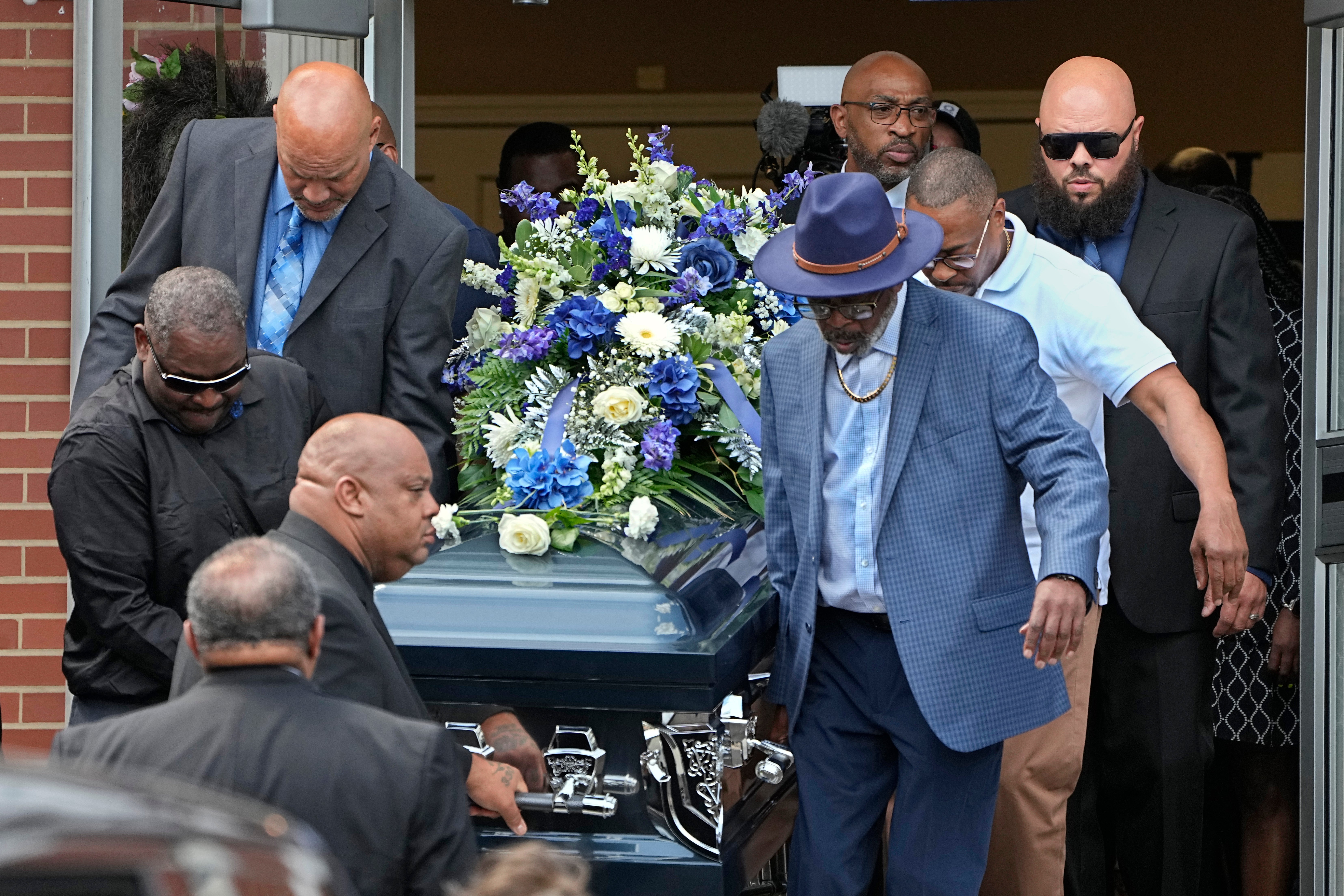The Rev. Al Sharpton calls for justice in eulogy for Ohio man who died last month in police custody
The Rev. Al Sharpton and family members of an Ohio man who died in police custody last month told mourners at his funeral that they and the community must fight to see that he gets justice

Your support helps us to tell the story
From reproductive rights to climate change to Big Tech, The Independent is on the ground when the story is developing. Whether it's investigating the financials of Elon Musk's pro-Trump PAC or producing our latest documentary, 'The A Word', which shines a light on the American women fighting for reproductive rights, we know how important it is to parse out the facts from the messaging.
At such a critical moment in US history, we need reporters on the ground. Your donation allows us to keep sending journalists to speak to both sides of the story.
The Independent is trusted by Americans across the entire political spectrum. And unlike many other quality news outlets, we choose not to lock Americans out of our reporting and analysis with paywalls. We believe quality journalism should be available to everyone, paid for by those who can afford it.
Your support makes all the difference.The Rev. Al Sharpton and family members of an Ohio man who died in police custody told mourners at his funeral on Wednesday that they and the community must fight to see that he gets justice.
Sharpton gave the eulogy for Frank Tyson, a 53-year-old East Canton resident, during the service at the Hear The Word Ministries church in Canton. Tyson died April 18 after he was handcuffed and left facedown on the floor of a social club while telling officers he couldn't breathe.
“You can’t give us Frank back, but you can do justice for this family,” Sharpton said. “This is an assault on all us ... stand up for the Franks of this word, because if they can get away with what they did to Frank, they’ll do it to you.”
Tyson's longtime partner, Sabrina Jones, noted that Tyson had been in prison for many years and was released less than two weeks before he died. She and members of his family had worked over the years on efforts to exonerate Tyson, who had long maintained his innocence.
“We only had 13 days with him (after his release) before they took his life away,” Jones said during the service, struggling to keep her composure at times. "It's hard, this is hard. I want justice for Frank.”
Bodycam video released by police shows Tyson resisted while being handcuffed and said repeatedly, “They’re trying to kill me” and “Call the sheriff,” as he was taken to the floor.
Tyson, who was Black, was taken into custody shortly after a vehicle crash that had severed a utility pole. Police body-camera footage showed that after a passing motorist directed officers to the bar, a woman opened the door and said: “Please get him out of here, now.”
Police restrained Tyson — including with a knee on his back — and he immediately told officers he could not breathe. A recent Associated Press investigation found those words — “I can’t breathe” — had been disregarded in other cases of deaths in police custody.
Officers told Tyson he was fine, to calm down and to stop fighting as he was handcuffed facedown with his legs crossed on the carpeted floor. Police were joking with bystanders and leafing through Tyson’s wallet before realizing he was in a medical crisis.
Five minutes after the body-camera footage recorded Tyson saying “I can’t breathe,” one officer asked another if Tyson had calmed down. The other replied, “He might be out.”
The two Canton officers involved, who are white, have been placed on paid administrative leave.
Tyson was released from state prison on April 6 after serving 24 years on a kidnapping and theft case and was almost immediately declared a post-release control supervision violator for failing to report to a parole officer, according to the Ohio Department of Rehabilitation and Correction.
The Ohio Attorney General’s Bureau of Criminal Investigation said in a statement last month that its probe will not determine if force was justified and that the prosecuting attorney or a grand jury will decide if charges related to the use of force are warranted.